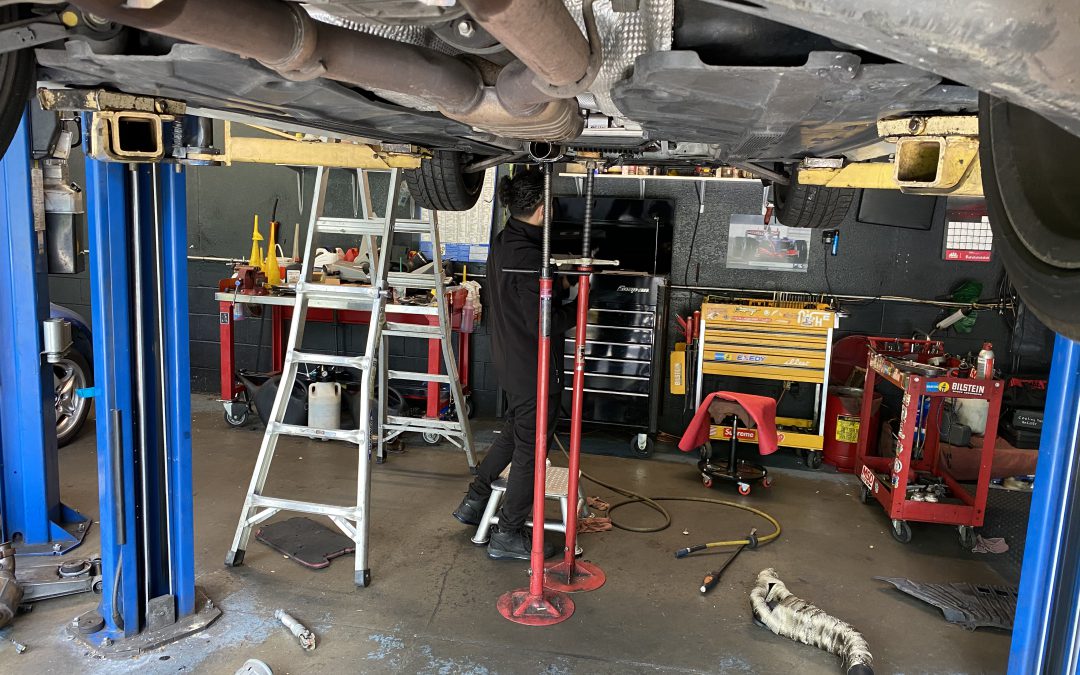Ever wondered what could go wrong if your vehicle’s Anti-Lock Braking System (ABS) malfunctions while you’re on the road? A faulty ABS system can lead to compromised braking performance, longer stopping distances, and an increased risk of skidding, especially in slippery conditions. Without the ABS working as intended, your safety and control over the vehicle could be significantly impacted. Stay tuned to uncover the potential dangers and consequences associated with a failing ABS system.
Understanding Anti-Lock Braking System
Purpose
The anti-lock braking system (ABS) is designed to prevent wheels from locking up during braking, ensuring the vehicle maintains traction with the road surface. This crucial safety feature helps reduce the risk of skidding and loss of control, especially in emergency braking situations.
ABS is vital for enhancing vehicle safety by allowing drivers to maintain steering control while braking hard. By preventing wheel lock-up, ABS enables the driver to steer around obstacles or navigate sharp turns even under intense braking pressure. This capability significantly reduces the likelihood of accidents caused by skidding or veering off course.
Components
The ABS comprises several key components that work together to ensure optimal braking performance. Sensors play a pivotal role in detecting wheel speed variations, transmitting this data to the control module. The control module acts as the brain of the system, processing information from the sensors and determining when to intervene to prevent wheel lock-up.
- Sensors: These devices monitor individual wheel speeds and send real-time data to the control module.
- Control Module: Responsible for analyzing sensor inputs and modulating brake pressure to prevent wheel lock-up.
In modern vehicles, ABS systems are equipped with additional features such as hydraulic units that regulate brake pressure and pump motors that assist in maintaining adequate pressure levels. These advanced components work seamlessly to ensure precise and effective braking performance across all driving conditions.
How ABS Works
Wheel Speed Monitoring
The typical ABS system functions by constantly monitoring the speed of each wheel to prevent lock-up. It utilizes ABS sensors located near each wheel to detect any potential wheel locking during braking. This monitoring process ensures that the wheels maintain traction with the road surface, enhancing overall vehicle control and stability.
During emergency stops, the ABS system plays a crucial role in modulating brake pressure to prevent wheel lock-up. When a driver applies sudden and hard pressure on the brake pedal, the electronic ABS controller receives signals from the ABS sensors regarding individual wheel speeds. Based on this information, the controller adjusts the brake pressure for each wheel independently, allowing them to continue rotating while slowing down the vehicle effectively.
ABS Modulation of Brake Pressure
One key component of the ABS functionality is the hydraulic pump, which works in tandem with the electronic controller to regulate brake pressure. The hydraulic pump is responsible for maintaining optimal braking performance by controlling the flow of brake fluid to each wheel ABS component. In case of wheel lock-up detection, the pump reduces brake pressure momentarily, preventing the wheels from seizing up and enabling the driver to steer the vehicle away from potential hazards.
- Prevents wheel lock-up
- Enhances vehicle control and stability
Role of Hydraulic Pumps
The hydraulic pumps in ABS systems are pivotal in ensuring smooth and controlled braking during emergency situations. By swiftly adjusting brake pressure based on real-time data from the single ABS sensor, these pumps contribute significantly to preventing accidents caused by skidding or loss of control. Moreover, they enable drivers to maintain steering capabilities even under intense braking conditions, further enhancing overall safety on the road.
Common ABS Issues
Electrical Failures
Electrical failures are common ABS problems that can lead to system malfunctions. When the ABS control module or sensors experience issues, it can disrupt the communication between components, causing the ABS to fail. Reason ABS may encounter electrical failures include wiring defects, corrosion, or sensor malfunctions.
Mechanical Problems
Mechanical issues such as worn-out sensors or damaged wiring can significantly impact the functionality of the ABS. Common ABS problems related to mechanical failures often stem from sensor deterioration due to wear and tear over time. Damaged wiring can also disrupt the transmission of signals within the system, leading to ABS failure.
Environmental Factors
Environmental factors like moisture or dirt can pose significant challenges to the proper functioning of the ABS. Moisture intrusion into the ABS components can cause corrosion and system malfunctions. Similarly, dirt accumulation on sensors can interfere with their ability to detect wheel speed accurately, affecting the overall performance of the ABS.
Signs of ABS Failure
Early Recognition
Recognizing early warning signs of ABS failure is crucial for ensuring road safety. Prompt identification can prevent potential accidents and hazards on the road.
Regular maintenance checks are essential to detect any signs of ABS failure early on. Ignoring these signs can lead to more severe issues, such as total ABS failure.
Importance of Diagnostics
When experiencing ABS issues, it is vital to seek prompt diagnostics from a qualified mechanic. Delaying repairs can escalate the problem and compromise the effectiveness of the braking system.
Diagnostics help pinpoint the specific signs of ABS failure, allowing for targeted repairs and maintenance. This proactive approach ensures the ABS functions optimally, enhancing overall vehicle safety.
Unresponsive Brake Pedal
Increased Resistance
When pressing the brake pedal, you may notice a sudden increase in resistance, making it harder to depress. This resistance can be a sign of low brake fluid levels or issues with the brake sensors. As you apply pressure, the pedal might feel stiffer than usual, indicating a potential problem with the ABS system.
Gradual Decline
Over time, as the ABS system deteriorates, the braking effectiveness can gradually decline. This decline is often subtle at first, with minor changes in how the brakes respond. If left unaddressed, this gradual deterioration can lead to more serious safety concerns on the road. Pay attention to any changes in how your brakes feel when driving.
Service Scheduling
If you find yourself exerting significant effort to engage the brakes or if the pedal feels unusually hard to press, it’s crucial to schedule a service appointment promptly. These symptoms could point to underlying issues within the ABS system that require professional attention. Ignoring these signs can compromise your vehicle’s safety and performance.
ABS Light Activation
Significance
The ABS light on your dashboard plays a crucial role in indicating potential issues within your vehicle’s ABS system. When this amber light illuminates, it signifies a problem that requires immediate attention. Ignoring this warning can lead to safety risks and further damage to the braking system.
Possible Issues
The activation of the ABS light can signal a range of problems, from something as simple as low brake fluid levels to more complex faults such as sensor malfunctions or issues with the ABS control module. These issues can impact the effectiveness of your vehicle’s braking system, compromising your safety on the road.
Importance of Prompt Action
When you notice the ABS light illuminated on your dashboard, it is essential to address the underlying problem promptly. Ignoring this warning light can result in decreased braking performance, longer stopping distances, and potential loss of control over your vehicle during emergency situations. Therefore, any dashboard warning lights related to the ABS system should be taken seriously and investigated immediately.
Brakes Locking Up
ABS Malfunction
When your brakes lock up, it’s a clear indication of a malfunction in the anti-lock braking system (ABS). This crucial safety feature is designed to prevent wheel lock during emergency braking situations.
Risks of Losing Traction
Locked brakes pose significant risks, primarily by causing the wheels to skid and lose traction. This loss of traction can lead to the driver losing control of the vehicle, especially in slippery or wet road conditions.
Urgency of Brake Service
If you experience brakes locking up, it’s essential to address the issue promptly. Even if there are no warning lights illuminated on your dashboard, immediate action is necessary. Seeking brake service as soon as possible can prevent further damage and ensure your safety on the road.
Random Pumping or Clicking Brakes
Unusual Sensations
Drivers may experience intermittent braking when their anti-lock braking system (ABS) fails. This can manifest as unexpected pumping sensations while applying the brakes, leading to a jerky and unstable driving experience. Such occurrences often catch drivers off guard during hard braking scenarios.
Auditory Cues
Another telltale sign of ABS failure is the presence of clicking sounds while driving. These clicks can indicate underlying issues within the ABS module, signaling potential malfunctions that require immediate attention. Drivers should not ignore such auditory cues as they could point towards critical problems with the braking system.
Diagnostic Consultation
When encountering random pumping or clicking brakes, it is crucial for drivers to seek professional help promptly. Consulting automotive experts for diagnostics can help pinpoint the root cause of the ABS failure and determine the necessary replacements or repairs needed to restore optimal brake function. Ignoring these symptoms could pose serious safety risks on the road.
Safe Driving with Failed ABS
Maintaining Distance
When facing faulty ABS systems, it’s crucial to maintain a greater distance from other vehicles on the road. By keeping a safe distance, you allow yourself more time to react in case of sudden stops or emergencies. This precaution can help prevent accidents and collisions.
Controlled Braking Techniques
In the event of a rear ABS sensor failure, it’s advisable to use gentle and controlled braking techniques. Instead of slamming on the brakes, apply gradual pressure to the brake pedal. This method helps avoid skidding and loss of control, especially in slippery or wet conditions.
Importance of Timely Repair
Failure of the anti-lock braking system should prompt immediate action to get it repaired. Driving with a malfunctioning ABS system compromises your safety on the road. It’s essential to prioritize fixing the issue before resuming normal driving activities.
Closing Thoughts
In the end, knowing the signs of ABS failure can be crucial for your safety on the road. Understanding these indicators and taking prompt action can prevent potential accidents and keep you and your passengers secure. Remember to address any ABS issues immediately to ensure your vehicle’s braking system functions effectively.
Stay vigilant, stay informed, and prioritize regular maintenance checks to detect ABS problems early on. Your awareness and proactive approach can make all the difference in maintaining a reliable and responsive braking system. Drive safely!

Are You In Need of Expert ABS Installation and Maintenance Services?
If you’re searching for a trusted expert in Anti-lock Braking System (ABS) installation and maintenance with a stellar reputation, look no further than autoTECH Blackhawk. Why choose us for your ABS needs? We stand out among independent automotive service providers by prioritizing strong customer relationships. This commitment allows us to tailor our services to your specific driving style and needs, especially when it comes to ABS.
Whether your goal is to enhance the safety of your everyday vehicle with a new ABS, maintain the effectiveness of your existing ABS, keep your cherished car in peak condition, or even educate your family about ABS functionality and maintenance, we’re here to help you achieve your automotive goals. We also take pride in offering an industry-leading 3-year/36,000-mile warranty, using only Original Equipment and manufacturer-recommended parts to ensure your complete satisfaction. Don’t hesitate to contact our friendly team today to schedule a convenient and contactless appointment!


